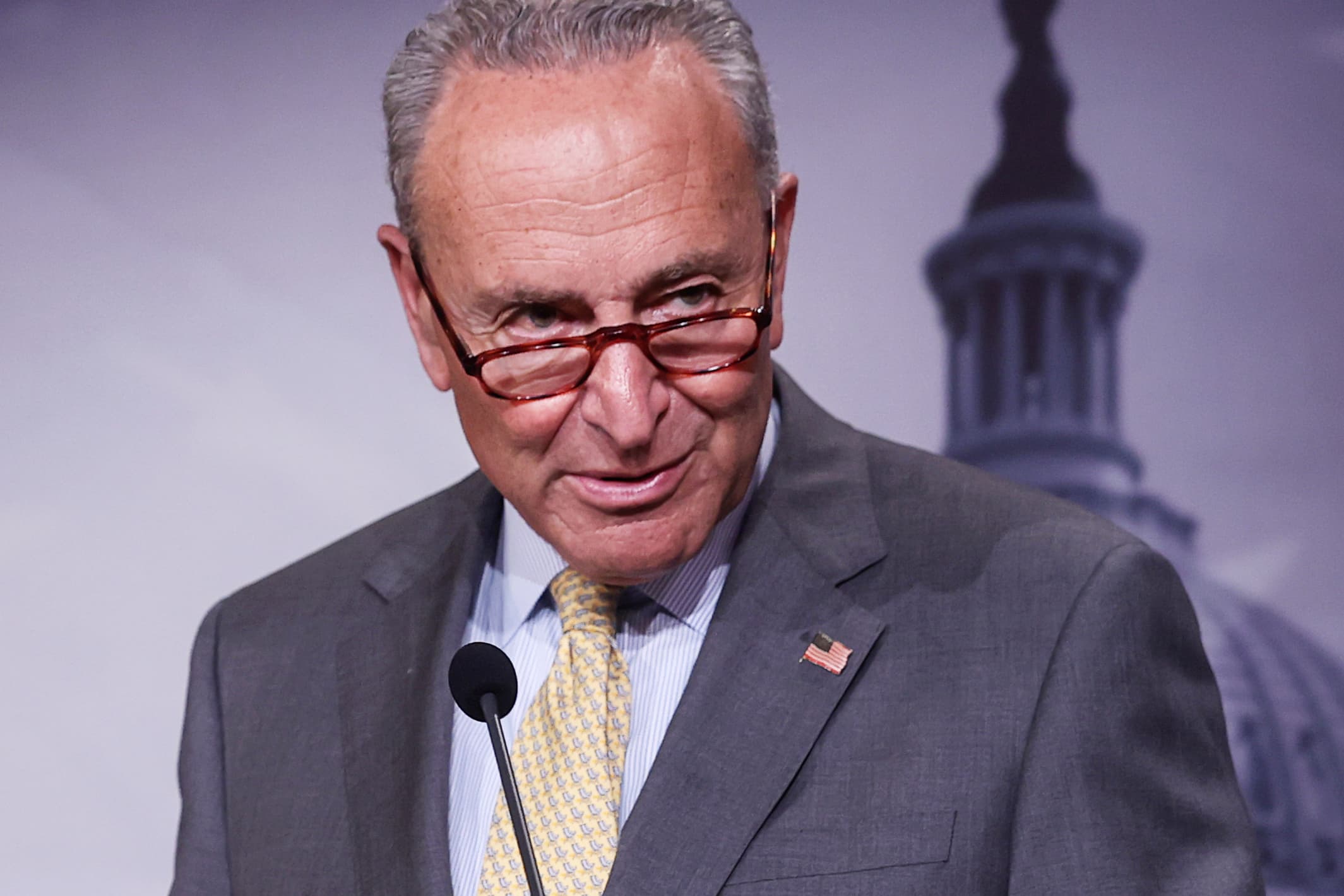U.S. Senate Minority Leader Chuck Schumer (D-NY) speaks to reporters during a news conference on Democrats’ demand for an extension of eviction protections in the next coronavirus disease (Covid-19) aid bill on Capitol Hill in Washington, July 22, 2020.
Jonathan Ernst | Reuters
Senate Democrats are making a last-ditch effort to undo President Donald Trump’s payroll tax deferral.
Sens. Chuck Schumer, D-N.Y., and Ron Wyden, D-Oregon, wrote to the Government Accountability Office, requesting that the Congressional watchdog determine whether guidance issued by the Treasury Department and the IRS on the payroll tax suspension is deemed a “rule” for the purposes of the Congressional Review Act.
The Congressional Review Act is a law that Congress can use to overturn rules handed down by federal agencies.
More from Personal Finance:
Sept. 1 is the first day of the payroll tax holiday
Five key things workers should know about the payroll tax deferral
How the CARES Act failed to protect tenants from eviction
In this case, the Schumer-Wyden letter is the first step toward overturning the payroll tax deferral that just went into effect on Sept. 1. News of the move by the two lawmakers was first reported by The Wall Street Journal.
The temporary suspension, handed down via an executive order, allows employers to delay collection of the 6.2% tax workers pay to fund Social Security. Generally, Social Security taxes are subject to a salary cap of $137,700 in 2020.
The deferral applies to employees whose wages paid in a bi-weekly pay period fall below $4,000 and it would be in effect until the end of the year.
Employers would then withhold the deferred amount from workers’ paychecks early next year. This means workers would see a bump in pay this fall, but a decrease in pay for the first few months of 2021.
It would require an act of Congress to forgive the tax owed, so remember that this is only a delay of these taxes.
“Because this guidance is effective starting Sept. 1, and its implementation may have significant financial ramifications for millions of hard-working American workers as early as Jan. 1, 2021, we ask that you provide a response no later than Sept. 22, 2020,” Schumer and Wyden wrote in their Sept. 2 letter to the Government Accountability Office.
A procedural matter
In particular, Schumer and Wyden want the Government Accountability Office to determine whether the three-page payroll tax deferral guidance the IRS issued is a rule.
If it is indeed deemed a rule, the Congressional Review Act gives Congress the power to review the regulation and overrule it through a joint resolution – that is, a legislative measure that’s passed by the House and Senate.
There’s a catch, of course.
“It requires a two-thirds majority vote in Congress and the president still has to sign it,” said Garrett Watson, senior policy analyst at the Tax Foundation.
“Blocking it is unlikely because it would require the support of the House and the Republican-controlled Senate to pass, and it’s expected the president would veto it,” he said. “There’s skepticism of the deferral and how it works, but it’s unlikely you’ll get the level of support needed to block it.”
Staying vigilant
stockstudioX
While the Congressional Review Act might be a Hail Mary pass to toss out the payroll tax deferral, it’s entirely possible that skittish employers may shy away from implementing the holiday in the first place.
Some of the worries on employers’ minds include the burden they face for deferring and paying the tax to the IRS.
They must pay the amount ratably – or proportionally over time – between Jan. 1 and April 30, or else they’ll be subject to penalties, interest and “additions to tax.”
Further, there’s the matter of educating workers on the trade-off: a temporary 6.2% bump to pay if the payroll tax is delayed, followed by extra withholding in early 2021 to recoup the money.
“I wonder how many employees would be expecting to receive it and don’t really understand that it’s a short-term loan,” said Janet Holtzblatt, senior fellow at the Urban-Brookings Tax Policy Center. “There could be confusion about how and when it will be repaid.”
